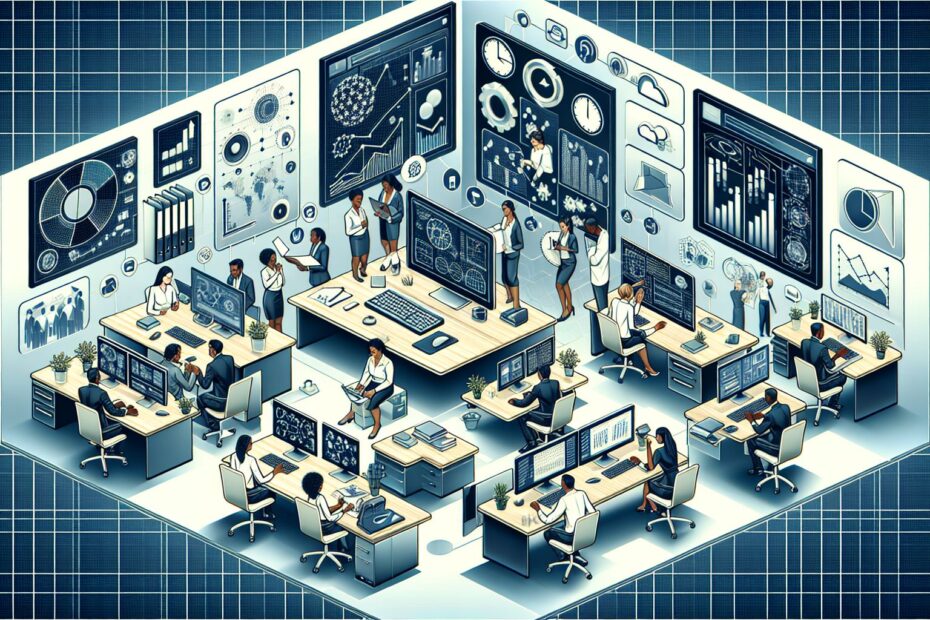In today’s fast-paced business environment, computers play a crucial role in helping organizations operate efficiently and effectively. From simple tasks like sending emails to complex operations like analyzing big data, computers have become an indispensable tool for businesses of all sizes. In this article, we will explore the various ways in which computers are used in the business world, as well as the benefits they bring to organizations.
Streamlining Communication
One of the most basic functions of computers in a business setting is facilitating communication. Email has become the primary mode of communication in many organizations, allowing employees to easily share information and collaborate on projects. Instant messaging and video conferencing tools have also made it easier for teams to communicate in real-time, even if they are located in different parts of the world.
Enhancing Productivity
Computers have revolutionized the way we work, making tasks that once took hours or even days to complete now possible in a matter of minutes. Spreadsheets, word processing software, and project management tools have all made it easier for employees to manage their workloads and stay organized. Additionally, automation software can help streamline repetitive tasks, freeing up employees to focus on more strategic initiatives.
Analyzing Big Data
The rise of big data has made it essential for businesses to have the ability to analyze large sets of data quickly and accurately. Computers are able to process massive amounts of data in a fraction of the time that it would take a human, allowing organizations to make informed decisions based on real-time insights. Whether it’s analyzing customer behavior or identifying market trends, computers play a vital role in helping businesses stay competitive in today’s data-driven economy.
Improving Customer Service
Computers have also transformed the way businesses interact with their customers. Customer relationship management (CRM) software allows organizations to track customer interactions, analyze customer data, and personalize marketing campaigns. Chatbots and other AI-powered tools can provide immediate assistance to customers, improving the overall customer experience. By leveraging technology, businesses can better understand their customers’ needs and tailor their offerings accordingly.
Ensuring Security
In an age where cyber threats are constantly evolving, computer security is a top priority for businesses. Firewalls, antivirus software, and encryption tools help protect sensitive data from malicious attacks. Regular software updates and employee training can help mitigate the risk of a data breach. By investing in robust cybersecurity measures, businesses can safeguard their information and maintain the trust of their customers.
Conclusion
As technology continues to advance, the role of computers in the business world will only become more important. From streamlining communication to analyzing big data, computers are a driving force behind the success of modern organizations. By leveraging the power of technology, businesses can improve productivity, enhance customer service, and stay ahead of the competition. As we look to the future, it’s clear that computers will continue to play a vital role in helping businesses thrive in a rapidly changing world.
